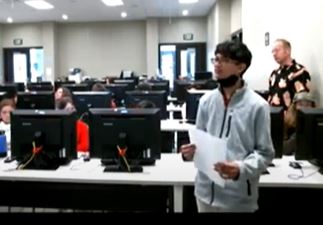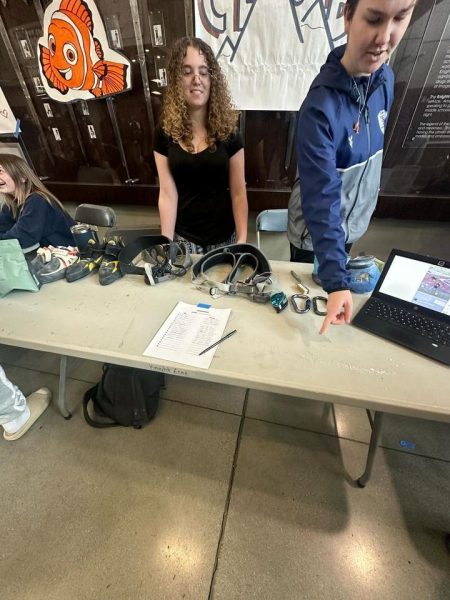Vaccines and the COVID-19 Vaccine
By Siddarth Sistla
Every year, right before winter, millions of people receive a shot which prevents infection from the influenza virus. The shot in question, is a vaccination. A vaccination prevents one from getting infected by a virus. However, it is not commonly known as to what exactly happens once a vaccine enters the body.
Vaccinations can take many years to develop. There are five different stages of vaccine development, from early experimentation to mass distribution. These stages in order are the exploratory stage, the preclinical stage, clinical development stage (with three different subphases), manufacturing stage, and quality control stage. During the exploratory stage, early experimentations are made to identify antigens (things that are toxic to the body) that may help prevent an infection. This early stage of development then transitions into preclinical studies, which tests the cellular and immune system response to the pathogens. This method eliminates most of the candidate vaccines that don’t produce the desired immune response. After the best vaccines are picked out from the candidate vaccines, the Food and Drug Administration tests the vaccines before their approval.
If the vaccines are approved, they are then put through three rigorous phases of testing. Phase I involves testing the vaccine’s defense against pathogens. The vaccine is tested side-by-side with a placebo. If Phase I proves successful, more direct human testing is used for Phase II. This assesses the most effective methods of delivery, doses, and immunization schedule. After Phase II, mass testing involving thousands of people is used in Phase III. This tests effects and potential risks even further. After this, a separate type of testing known as Phase IV testing assesses the potential anomalies of the vaccinations, such as other infections associated with the injection, or lack of effect on the patient. If all tests are passed, the vaccine is officially approved by the FDA and manufactured for distribution. This brings the vaccine from the manufacturing plant to your doctor’s office.
To understand the impacts of a vaccine and what it does exactly, we need to understand the specific process that a vaccine triggers. Unlike antibiotics, which actively combat initiated infections, a vaccine indirectly combats the infection through your immune system. Your body doesn’t like to waste resources fighting the same infections repeatedly, so your immune system has a type of immune cells known as memory cells. In the immune system, a type of cell known as the T-helper detects antigens that enter the body. These cells command offensive attack cells, such as macrophage and killer t-cells, to attack the pathogen. The helper t-cells also order the production of antibodies. Although this is an effective method, the coordination of the cells can take up to a week. This can allow time for an infection to grow and deal more potential damage. To prevent this growth of the infection, the immune system creates memory b-cells after the pathogen is nullified. These cells keep information on the offender and remain dormant until an infection is detected again. If the infection is detected ever again, this natural defense mechanism often ends the infection before it even starts. A vaccine is designed to mimic an infection using weak, dead or damaged viruses. It allows a person to develop immunity without getting sick.
The way the COVID-19 vaccine will affect people is by reducing the spread. It will help those who are not infected return to daily life safely. As of now, many doctors and pharmaceutical companies are working rapidly on developing a vaccine. The vaccine has reached Phase I testing and should reduce the amount of infections, while also decreasing the number of hospitalized patients upon release. This vaccine will be very important to the slowdown of the spread. It is very important to schedule vaccination once it is officially released by the FDA. Although this vaccine will help reduce the amount of cases, it is still important to remain at home and maintain social distancing.
Vaccines are very important for keeping people safe. They help protect the spread of dangerous diseases and can also make them go extinct. Vaccines also help prevent the extensive use of antibiotics and promote immunity among people. They help support healthcare, prevent infections, and are an important medical tool that can help end deadly diseases and improve the safety of humanity.






















Aiden Bartee • Mar 16, 2021 at 1:09 pm
I think that it is also good to note that the Covid-19 vaccine is a new type of vaccine. It is an new type of technology that uses the mRNA in the virus to deliver a copy of the virus “spike virus” . This is the spike on the virus that attaches to cells to deliver the genetic material to reproduce. However, since it is new technology, we are still learning how the Covid-19 vaccine helps the human immune system. I would also like to note that, like all vaccines, there have been some bad reactions to the vaccine that has led to hospitalizations and even death (though it could have been a number of different variables). Thought this does not mean don’t take the vaccine. With the vaccines having a +90% efficiency rate, it is an extremely useful weapon we have against this virus.